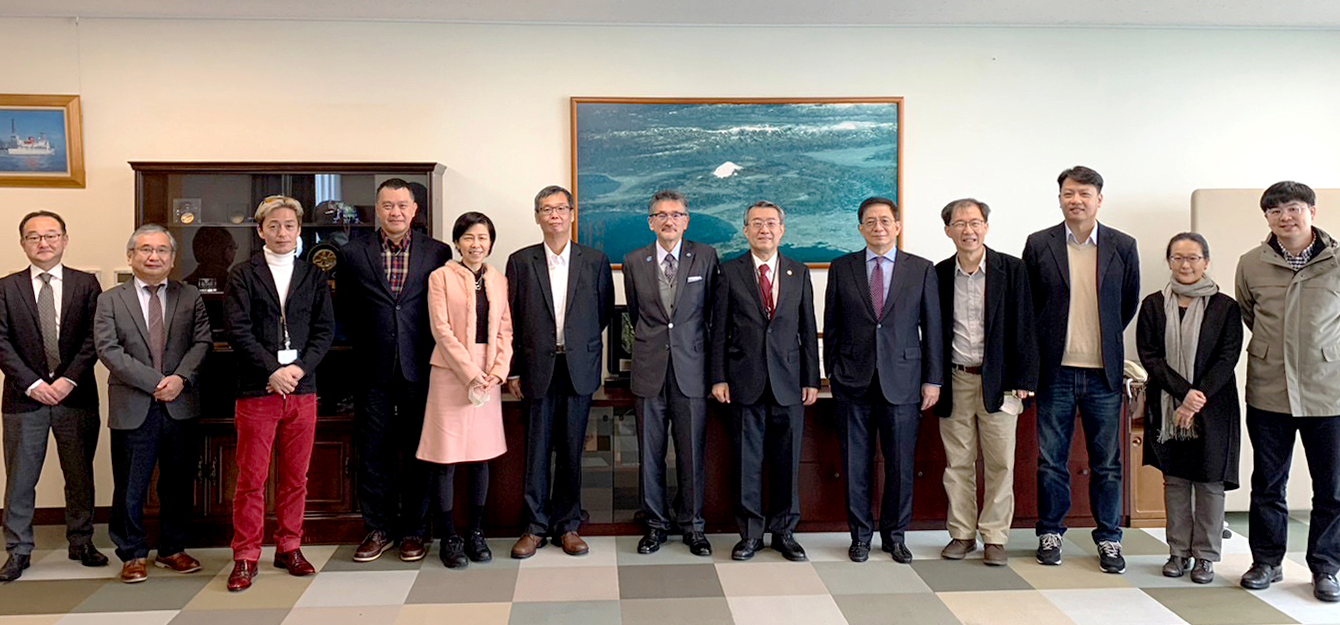
Group photo of the NTU delegation and hosts at Japan CCS Co., Ltd.
To accelerate reaching Taiwan’s goal of net-zero carbon emissions by 2050, NTU researchers are actively studying carbon negative solutions and striving to harness their findings in the development of industrial technologies—and realize University Social Responsibility (USR). Professor Chung-Ming Kuan, the then President of NTU, led a delegation to Japan in December 2022. As representatives of the newly established Science and Technology Research Institute of DE-Carbonization (STRIDE-C), the NTU Department of Geosciences, the NTU Institute of Oceanography, and National Dong Hwa University, the seven delegates visited Japan CCS Co., Ltd. (JCCS), Japan Agency for Marine-Earth Science and Technology (JAMSTEC), and Kochi University (KU).
The delegation visited several of Japan’s top-tier, world class organizations in related fields. Notably, the Kochi Core Center (KCC) is one of the three global marine core repositories co-managed by the Center for Advanced Marine Core Research (CMCR) of Kochi University and JAMSTEC. Besides its refrigerated storage space with constant humidity able to accommodate up to 250-kilometer ocean core, KCC possesses a variety of advanced equipment for analyzing the non-destructive physical, chemical, and structural characteristics of the cores. KCC will be an important template for developing core storage and analysis facilities and equipment at NTU.
Professor Kuan affirmed that not only is sustainable development a common challenge for human survival, but it is an important driving force for maintaining Taiwan’s economic and social development and stability. The adoption of proactive decarbonization technology of geologic sequestration and the extraction of geothermal energy as part of the green energy transformation will be the key to reducing carbon emissions in Taiwan. Whether or not this process can be implemented will depend on in-depth knowledge of underground geology. NTU and KU have sufficient research and development capabilities as well as the talents required for developing the field. Through the establishment of STRIDE-C, NTU is building upon its solid foundation in knowledge and technologies in order to accelerate Taiwan’s sustainable development down the road to net zero emissions while acting as the leader in innovation and society.

Group photo of the NTU delegation and hosts at Japan Agency for Marine-Earth Science and Technology.

Group photo of the NTU delegation and hosts from Kochi University and Center for Advanced Marine Core Research.
